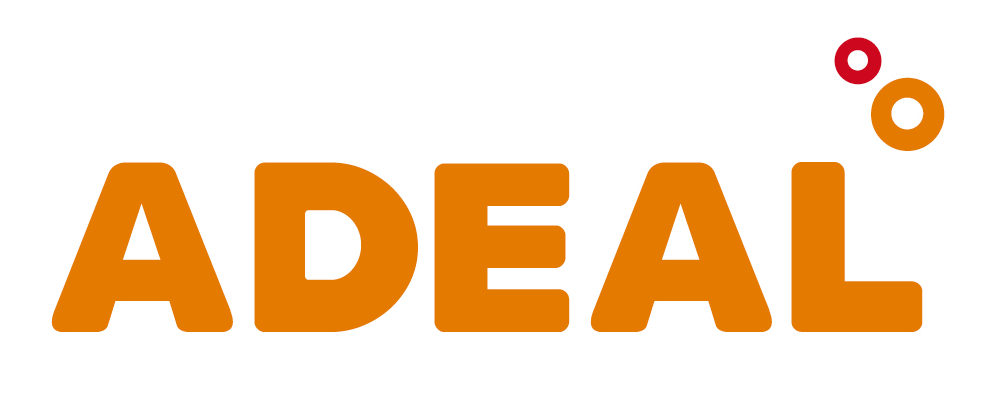She is a former Google Tech Entrepreneur and she holds an MSc in International Marketing from Edinburgh Napier University. Any good business is constantly juggling costs against revenue so company efforts produce profits. While most small-business CRM plans start at around $10 to $50 a month, those prices can be deceptive. If your company needs a CRM for 50 people to use, you must often multiply that per-seat price by the number of people who will use the CRM. On the other hand, the architectural blueprint is equally vital, outlining the technological foundation that supports the CRM’s operations. By diligently crafting design and architecture, developers ensure the CRM’s scalability, responsiveness, and adaptability.

Software developers specializing in CRM may design systems that meet a company’s customer service needs and business objectives. These professionals may enhance existing CRM infrastructures with tools like plugins, add-ons, and modules. They may integrate CRM software with third-party applications or build independent applications. If your company doesn’t already have a standardized system for converting leads into customers, take some time to think about how your sales team generates leads and what activities your reps complete to close them. By having access to information on customer interest and behavior, your sales reps can pursue the right opportunities at the right time, or collaborate with your marketing team to deliver targeted and useful content to your prospects.
How much does it cost to build a CRM system?
CRM software, short for customer relationship management software, is software businesses use to close more deals and build better relationships with customers, leads, and other contacts. Custom CRM is a made-to-order customer relationship management software built from scratch for a company. Its features match processes and other tools used by the client, offering practical ways to boost their business. A CRM system gives everyone — from sales, customer service, business development, recruiting, marketing, or any other line of business — a better way to manage the external interactions and relationships that drive success.
More and more companies establish Customer Success teams as separate from the traditional Sales team and task them with managing existing customer relations. At some point in our lives, most of us have reflected on how much easier life would be if we could see the future. Instant reports reveal if you are likely to meet or exceed sales goals. Perhaps even more importantly, CRM sales forecasts tell businesses if they are likely to fall short of sales goals, giving businesses the time and insights to pivot their strategy to get back on track before it’s too late.
How to choose a custom CRM development company?
In response to COVID-19, Edelweiss Global Wealth Management has accelerated digital transformation and adoption. Customers continue to have 24/7 access to their funds and to financial advisors. To ensure that these orders are processed smoothly, Edelweiss has driven up adoption of the Salesforce Mobile App across its workforce, with an additional layer of https://www.globalcloudteam.com/ security built-in to make transactions more secure. All employees now use the app to access data on customers and transactions right on their mobile devices, resulting in agile execution and uninterrupted customer service. The Salesforce mobile app also continues to record customer calls, enabling employees to stay attuned to customer needs and feedback.
- To do so, determine how many people within your organization would need to use the CRM actively and determine your overall budget for a CRM.
- CRM software allows your internal teams to gain a 360-degree view of your customers and leads.
- When it comes to CRM examples, there are some popular, ready solutions that can be chosen as out-of-the-box solutions.
- Most of the job listings for CRM developers list a Bachelor’s or equivalent degree in Computer Science as a requirement.
- It’s a delicate balance between creativity and technical precision, where every code snippet contributes to the CRM’s overall excellence.
- Companies or salespeople are always looking for more leads to get more business.
- Your CRM gives you all the capabilities you need to gather interactional data from leads and customers.
Along with adequate customer service and social skills, CRM developers need a strong background in lead generation and programming. These all meld together into the backbone of customer relationship management. For example, your sales reps may repeatedly make CRM notes revealing that leads hesitate to purchase once prices are discussed. Your CRM can highlight this trend, thereby alerting your marketing team. In response, marketers can create campaigns that highlight newly added or competitive features, making those price bumps seem like bargains. In turn, when newly qualified leads hit the conversion stage, that point of hesitancy is nixed before it forms.
Which business functions need a CRM system?
Hence, the CRM industry has created a huge market demand for developers who can extend the capabilities of existing CRM to help businesses achieve their goals. Businesses benefit across the board from CRM usage, from increased customer satisfaction to higher online sales. Likewise, POS integrations help you develop personalized marketing campaigns.

The ability to streamline sales, marketing, and customer service processes makes operational CRMs highly functional for businesses. Operational CRM systems manage contact or customer data, sales pipelines, interactions with your business, and other key process-driven information. Marketing, sales, and customer service teams require accurate, up-to-date information for effective interactions with leads and clients. However, updating records is challenging and time-consuming if you rely on manual data entry. Small businesses use CRM systems to simplify workflows, personalize messaging, and improve customer service. It offers key features like marketing automation, lead capture forms, notes storage, email marketing, task management, integration capabilities and analytics dashboards.
What is the meaning of CRM?
The design captures the essence of user experience (UX), ensuring that interactions are intuitive and visually appealing. Reports can be hard to create, and they can waste valuable selling time. Managers can lose sight of what their teams are up to, which means that they can’t offer the right support at the right time — while a lack of oversight can also result in a lack of accountability from the team.

With mobile CRM access and smartphone notifications, salespeople won’t miss anything important, whether they’re on a plane, at a client site, or walking into a meeting. CRM data also helps you anticipate your customer’s needs before they reach out to you, and your support team can keep your customers happy by solving their problems as soon as they arise. Having a more accurate sense of your win rate allows sales managers crm software development to dependably forecast how many sales their team will close from a given number of leads and set realistic revenue goals. Best yet, because this data is put away inside a concentrated database, it very well may be gotten to by various clients continuously. To build a custom CRM, you will need to hire software developers (either in-house or outsourced), as this approach requires software development of the desired system.
Pipedrive: Best for Tracking Sales Pipeline
These features, when used together, help companies learn about their leads and customers, which offer them personalized experiences that nurture them to buy. For example, marketing teams can rely on automation to segment customers, then design, publish and report on targeted campaigns. Likewise, sales reps can automate customer data entry and interaction history, then use the insights to nurture leads via preferred channels. Given that history, it’s no surprise that Zendesk Sell excels at understanding customer information and communication. For sales teams working in different locations and on the go, Sell’s “smart” lists group contacts and leads, making it easier for everyone to see customers who need immediate attention. Create custom fields for those contacts or automate a workflow for sales reps. A built-in phone dialer automatically logs calls and records conversations.

Pipedrive’s powerful visual sales pipelines may be a game changer for teams struggling with bottlenecks or clients who want to see the big picture. You get unlimited deal pipelines with every plan, Kanban-style boards that you may use to drag and drop deals from one stage to the next. If your small business is ready to boost its sales efforts, there’s a lot to like about Freshsales by Freshworks. It has lower pricing than competitors like Pipedrive, AI tools for lead scoring and crafting better sales forecasts, plus reports and dashboards for all but the free plan.
